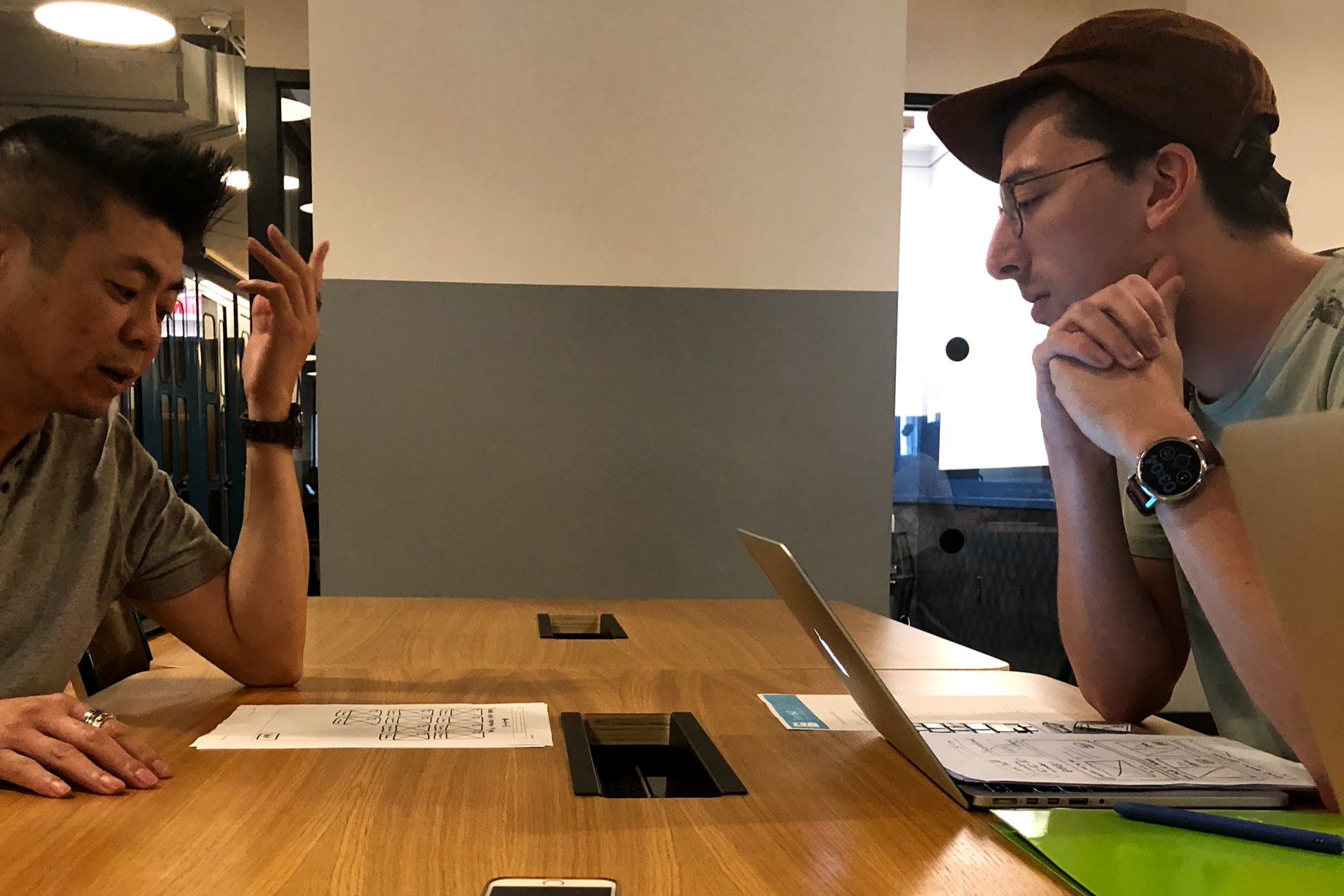Client
WeWork
Skills
Interaction design, user research, user testing, UX strategy, UX writing
Tools
Axure, Keynote, Sketch
Time frame
4 weeks
WeWork is a provider of shared workspaces and services to small companies and startups with a focus on creating community. We were asked to design a product for WeWork companies and members to give back to their community through volunteer opportunities.
The challenge
Trouble sourcing users
We had an entire directory of companies at our local WeWork location and yet everyone we reached out to didn’t respond, even with the incentive of free credits in conference rooms, something that doesn’t come cheap at WeWork. When it came to nonprofit users, we initially planned to talk to organizations within WeWork itself but found there were very few nonprofit tenants.
Lack of client involvement
Compared to my other projects where we met with our client at least once per week, this project only involved one interview with the person leading their volunteer initiative, other than that our main point of contact was the community manager at our specific WeWork location who was helpful when it came to understanding the community but not in helping us understand what some constraints would be for our solution.
A broad scope
As one of my earlier projects, it was hard for my team to resist the temptation to solve every problem our users brought up during our research sprint. We initially created three user personas with very different needs and it was a challenge to narrow our focus to just one primary persona.
Our research
Through various methods of research, including desk research, competitive analysis, user interviews, concept testing, and usability testing we synthesized a few key insights that guided our research.
Volunteer events won’t happen unless leaders get help
When interviewing business leaders, we learned that they are very interested in having team-building volunteer events with their employees, but they don’t have anyone to plan them. Because they run small companies, it would be their responsibility to plan it and they often put it off because other tasks necessitate their attention so we knew we needed to streamline the planning process.
Personal values are the most important factor
Every person we talked to spoke of personal experiences volunteering for organizations that fit their values and personal identity. Some even spoke of the concern of workplace volunteering forcing them to volunteer somewhere that didn’t fit their values. We planned to build a solution that would honor these values and identities and make sure our users don’t end up in a situation that they didn’t enjoy.
Users don’t trust nonprofit organizations
Users consistently mentioned that they are a bit skeptical of nonprofits in general, and some even took the time to do additional research to verify their time and/or money was going to a legitimate organization. We knew our design would need to build trust with users and provide information that will allow them to assess legitimacy.
Our design
Our solution was a platform for business leaders who want to plan volunteer events for their staff. I designed a three-step quiz that assesses users values and matches them to nonprofits based on the results, a dashboard for business leaders that suggests volunteer events based on their an anonymous amalgamation of their employees’ values, and event pages to RSVP to the events.
An onboarding flow that quizzes users on their values to identify volunteer events that they would be personally interested in attending. I was intentional about the copy here to make sure we were making users comfortable about their information being anonymous and asking questions about identity in sensitive ways.
A dashboard for business leaders to see data on volunteer events and a curated list of volunteer events that would match their employee’s values and interests.
An event page that provides important details about the event, information about the nonprofit organization so users can verify their validity, and reviews of past events. Business leader can RSVP to the event and invite their employees.
The result
We created a solution that streamlines planning volunteer events for leaders of small companies
We used our various methods of research to develop a platform that streamlines the process for business leaders to plan team-building volunteer events for their employees. To accomplish this, I developed a flow that quizzes users on their ‘volunteer values’ so the business leader can make an informed decision on which nonprofit’s event to attend. We also designed a dashboard to display anonymous data on employee values and relevant nonprofits, as well as event pages that build trust with users by displaying verifiable information on the nonprofit’s legitimacy.
I learned the value of approaching strangers and using my professional network to source users
When we struggled to recruit users for research, we ended up approaching people in the common areas of our WeWork location, something that was not easy for me to do as an introverted person. We had quite a lot of success with this, I learned most people are pretty eager to talk about their experiences and feel like they’re contributing. For nonprofit users I reached out to my network of colleagues from my work in the industry and lined up interviews for my team.
I learned to focus in on a specific user persona while still keeping other users in mind
To accomplish this result, we focused in on business leaders and the problems they face running small companies. However, I learned the value of keeping other users in mind throughout the design process by creating a quiz for employees to take so their voice is part of the volunteer planning process, and developed future recommendations to include nonprofit users so they can contribute their information and events for their organizations.


